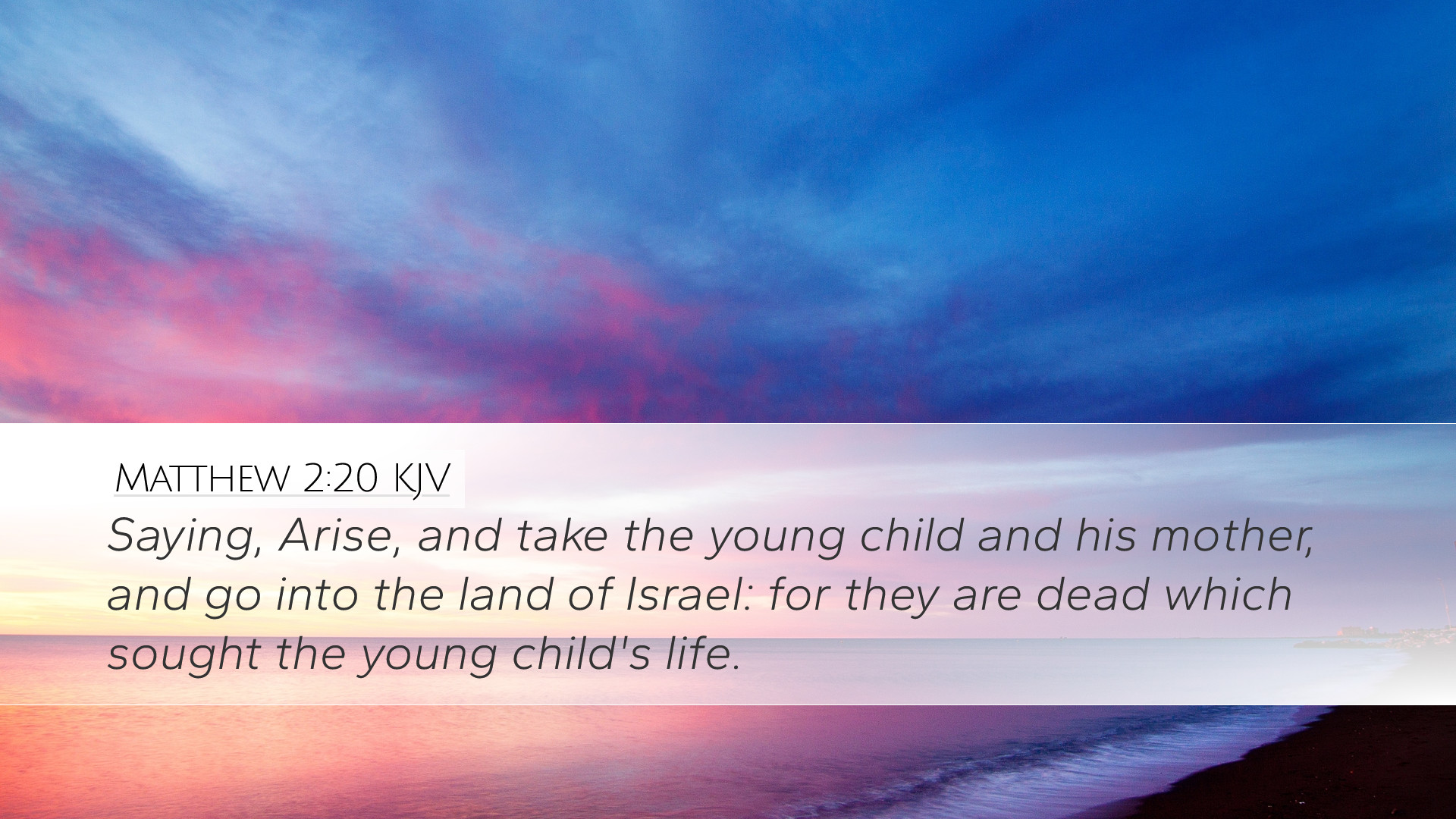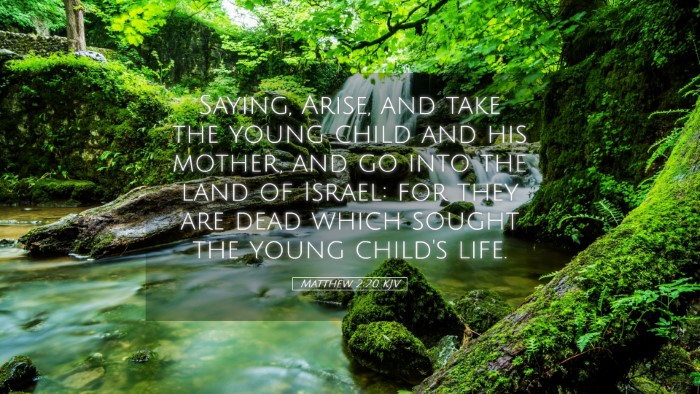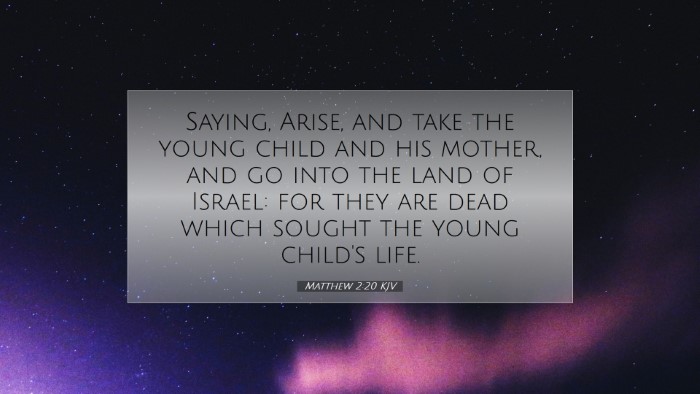Commentary on Matthew 2:20
Matthew 2:20 presents a critical moment in the narrative of Jesus' early life, specifically His flight into Egypt and the subsequent return. The verse states:
"Arise, and take the young child and his mother, and go into the land of Israel: for they are dead which sought the young child's life."
Contextual Overview
This verse follows the broader context of Matthew's account of the birth of Jesus and the challenges surrounding it, particularly the threat from King Herod. This moment is not simply about the logistics of returning to Israel; it represents the fulfillment of prophecy and God's providential guidance.
Commentary Insights
-
Divine Guidance
Matthew Henry emphasizes the divine guidance given to Joseph through the angel of the Lord. This divine intervention is critical as it illuminates God's hand in protecting Jesus and fulfilling His plan. Henry notes, "God’s providence is a refuge for the faithful," reminding us that God will direct the paths of those who trust in Him.
-
The Significance of “Arise”
Albert Barnes highlights the imperative "Arise," which speaks to the immediate action required from Joseph. This command signifies readiness and obedience; it reassures us that God’s direction often requires a prompt response. Barnes points out, "Delayed obedience is disobedience." This serves as a profound reminder for believers to act without hesitation when prompted by God.
-
Fulfillment of Prophecy
Adam Clarke delves into the prophetic implications of returning to Israel. The mention of the land of Israel resonates deeply with the Jewish understanding of covenant, land, and identity. Clarke asserts that this return validates Jesus' role as the Messiah and the fulfillment of God's promises to His people. This correlation is significant for theological reflection on Jesus’ identity.
-
Protection and Providence
Matthew Henry further expounds upon the protection offered to Jesus when he notes that those who sought to destroy Him had died. This reflects God's providence in safeguarding His purposes. The timely demise of Herod serves as a reminder that while earthly powers may seek to thwart God’s plan, they cannot succeed when God is at work.
-
Paternal Responsibility
Both Henry and Barnes elucidate the responsibility placed upon Joseph, as a father figure, to lead and protect his family. This paternal role embodies the theological understanding of Jesus as part of a lineage that required diligent guardianship. Joseph's obedience portrays the ideal response to God’s directives—an inspiring lesson for all in leadership, especially in ministry.
-
Symbolism of Egypt
Clarke also points out the allegorical significance of Egypt in the history of Israel. Egypt represents a place of refuge but also of bondage. The journey out of Egypt signifies a transition from vulnerability to restoration. Thus, Joseph’s obedience in returning highlights God's ability to transform difficult circumstances into pathways of salvation.
-
Theological Implications
From a theological standpoint, Matthew 2:20 can be seen as a precursor to the ultimate redemption narrative found in Christ. The protection of the Holy Family serves not merely a historical purpose but illustrates God's overarching plan of salvation. This serves as a poignant reminder for both pastors and scholars to consider how such narratives relate to contemporary Christian faith and eschatological hope.
Conclusion
Matthew 2:20 encapsulates vital theological truths that resonate with the faithful journey. The insights derived from public domain commentaries offer a multi-faceted understanding of divine guidance, parental responsibility, and prophetic fulfillment. For pastors, theologians, and students, this verse stands as a profound example of the necessity for obedience, the assurance of God’s providence, and the depth of Christ’s early life narrative. It invites a reflective engagement with the text, urging a faithful response to God’s call while trusting in His sovereign care.


